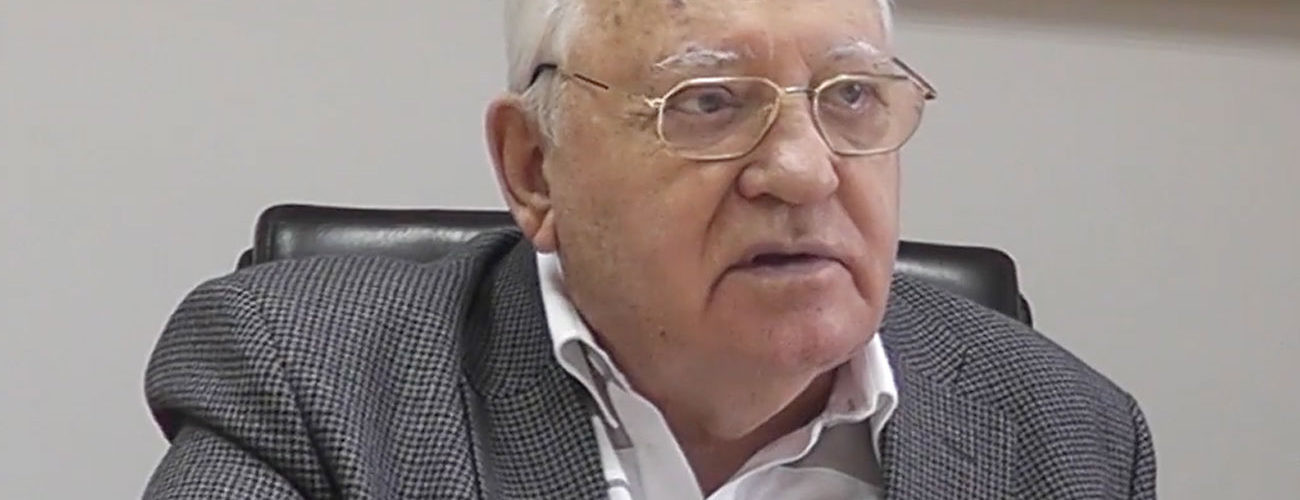Former Soviet leader Mikhail Gorbechev during remarks given for broadcast at an IPI meeting in Rekjavik, Iceland. The meeting sought to examine lessons learned from the 1986 summit between Gorbachev and Ronald Reagan that was the beginning of the end of the cold war.
At an IPI seminar in Reykjavik, Iceland yesterday, former Soviet leader Mikhail Gorbachev said via video, “I would like to emphasize something, with all the emotions I have in my soul: the worst thing that has happened over the past few years is the collapse of trust in relations between the major powers, which, according to the UN Charter, bear primary responsibility for maintaining international peace and security, and which still have enormous stockpiles of nuclear weapons and must reduce them, up to and including their elimination.”
“Nuclear war cannot be won and must never be fought,” Mr. Gorbachev said. “I think it sounds even stronger today than at that time.”
With today’s US-Russian relations at a new low, can his meeting with Ronald Reagan at the Reykjavik summit 30 years ago—which history views as the beginning of the end of the cold war—serve as an inspiration for arms control and reducing tensions today?
This question is the topic of the IPI seminar, “The Legacy of the Reykjavik Summit,” organized with the Foreign Ministry of Iceland, taking place October 10-11, 2016.
Mr. Gorbachev’s full remarks, below.
George Shultz, who was US Secretary of State under Ronald Reagan, also gave opening remarks.
On October 11-12, 1986, the President of the United States of America Ronald Reagan, and the General Secretary of the Communist Partyof the Soviet Union, Mikhail Gorbachev, met in the capital of Iceland, Reykjavík, to discuss a radical plan: redirection of nuclear-armed missiles and a move towards a nuclear free world. The meeting was a breakthrough in relations between the USSR and the United States, and is widely considered as the beginning of the end of the Cold War.
Thirty years later, tensions between Russia and the West are at their highest since the Cuban Missile Crisis. Instability in other parts of the world, like the Middle East and the South China Sea, is also creating new risks, and leading to a new arms race.
Can the anniversary of that historic meeting at the Höfði House in Reykjavík thirty years ago provide an inspiration to de-escalate tensions between NATO and Russia? Can it help to promote non-proliferation, and reignite the hope of a nuclear free world? Participants at this meeting include former and current diplomats, arms control experts, historians, and representatives of civil society.








